Be prepared for a real electric shock. If you’ve got an EV which you charge at home and haven’t swapped to a special energy tariff, you’re likely to be wasting more than £500 per year.
This is because the energy suppliers are very keen to have electric car owners signing up. Not only will your consumption shoot up because of the charging, but you are likely to plug in at night when demand is low. This makes you a perfect customer, and as a result there are plenty of keen deals.
Sifting through the offers can be a bit of a minefield, so we’ve been crunching the numbers for you to compare some of the best tariffs for electric car users right now.
We’ve had to make certain assumptions though. For the purposes of this feature, we have based the figures on a typical example using a postcode in what energy companies classify as the 'Eastern' region – but the figures will vary based on your circumstances, car and even the charger. So always get a personal quote to see which works out best for you.
Energy tariffs – the figures
Just for clarity, we need to throw some numbers at you so you can see how we worked out our figures. Skip this next paragraph if you trust us and just want to get to the results.
According to Ofgem, the average power consumption for a three-bed house on a dual fuel supply (so using gas for heating) is 2,700kWh per year. If this customer bought a family size electric car such as a VW ID.3 with a real world efficiency rate of 3.8 miles per kWh, covering 8,500 miles every year and charging exclusively at home it would add an extra 2,236kWh to the total.
At the standard Ofgem price cap rate of 27.69p per kWh (between 1 January and 31 March 2026), the electricity to keep the car running would add £619.15 a year or £51.60 per month to the energy bill. That’s still usefully cheaper than running a petrol car but shifting to a special tariff could see that fall to just £13 per month.
To keep things simple for our spreadsheet we assumed that all the car charging would be done at night in the off-peak period, which is easily possible for the average driver: five hours on a wall box supplying 7.1kW would be enough for 135 miles of driving on our sample car – more than enough to cover most daily journeys.
We also simplified things by saying all the other domestic power usage would be at the peak rate. If you can shift some of your other electricity consumption to overnight by using timers, the overall savings will easily exceed £500 per year. For example, a dishwasher cycle falls in cost from around 43p to 13p.
Why you need a certain car or charger to get the best EV energy deals
Energy companies really like to have flexibility around supply. When it is the middle of the night, the weather is mild and the wind is blowing there will be lots of surplus power sloshing around in the grid and they will be very happy if they can zap it into your electric car’s battery. When we’ve all arrived back from work and switched on the oven, TV and electric heater the companies would really rather not have to fire up another power station in order to charge electric cars too.
But there is an even more sophisticated solution which sees the supplier talk to your car or wallbox and start the charge when there is the lowest demand on the grid. You just tell the app how much power you need in the battery and when you want to drive away and the technology sorts it all out with no other input from you needed.
Doing this results in even cheaper rates – Octopus for example is 1.5p/kWh cheaper off peak for its Intelligent Go tariff versus its standard Go rate. But there is a catch – currently these intelligent or smart tariffs only work with certain cars and chargers. The list is growing all the time and does vary slightly by energy company, but currently it is around 280 models from Audi, BMW, Cupra, Ford, Mini, Porsche, Polestar, Nissan (but only the Ariya) Renault, Seat, Skoda, Tesla, VW or Volvo. The chargers are Ohme, Indra MyEnergi Zappi, Andersen, Simpson & Partners, Wallbox, Hypervolt, NexBlu, VCHRGD, and Sync.
Based on our sums and prices in January 2026, these are currently the best home tariffs on offer to electric car owners – but read the details to see if there is one which might suit your unique circumstances better.
Octopus has recently announced a new V2G tariff which it says offers free charging at home. We haven't included this yet as it requires a very expensive charger and is limited to a narrow selection of cars. When the situation improves we will update the rankings.
Remember the gas
Many homes in the UK will still be running gas for heating and hot water, and it will usually make sense to combine your supplies into a 'dual fuel' tariff to get the best deal. For simplicity we haven't looked at the gas prices in this round up, but if you do require gas then you may find that it tips the balance towards one supplier. For example, Ecotricity's gas is currently cheaper than Octopus so it may make it cheaper as an overall package.
Based on our sums and prices in late January 2026, these are currently the best home tariffs on offer to electric car owners – but please read the details to see if there is one which might suit your unique circumstances better.
12. EDF EVolve
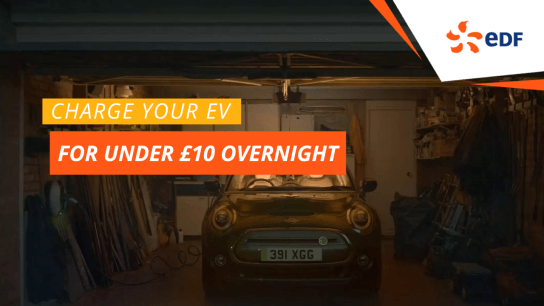
Edfenergy.com
Cost/year: £1,332.61
Peak: 27.9p
Off peak: 17.88p
Standing charge: 49.3p
Off peak hours: 5
Go through to EDF's 'Electric Cars' menu and you are given a choice of three packages. One is called GoElectric overnight and says it is better for high mileage drivers, then there's a tariff which is reserved for Pod Point charger customers. The third offering is called EVolve and is "for low to medium drivers". We ran the numbers on this and can’t really see any reason to choose it over a rival. Even the special PodPoint rates are on the high side.
On the plus side, the peak rate is among the cheapest of any provider here at 27.88p per kWh – that’s the third cheapest – which means it might be suitable for users with heavy daytime use. The company guarantees this rate will never be higher than the Ofgem price cap, but this is offset by an off-peak charge.
This off-peak rate will always track at 10p less than the peak tariff – in this case that means 17.88p/kWh, which is valid for five hours every night. That is a nice saving compared to the peak but is by far the most expensive here, costing £243.28 more than the best Octopus rate every year just for the car charging.
There are some ways to save more though. If you have a Hypervolt Home 3 Pro or myenergi zappi charger or a compatible car, the company will let you sign up for a Smart Charging bolt on package which saves a fiver every month. The standing charges are reasonable at 49.33p per day too. But even taking that into account for the first year it would still only sneak up a couple spots in the chart. There's a £25 exit fee too.
11. Good Energy

Goodenergy.co.uk
Cost/year: £1,283.21
Peak: 33.0p
Off peak: 8p
Standing charge: 58.52p
Off peak hours: 5
Good Energy isn’t a household name, but most electric car drivers will have heard of its subsidiary Zapmap.
It’s quite tricky to find the energy tariffs on the Good Energy website at all, as it is more geared to selling you heat pumps and solar panels. But dig deep enough and it will give you a quote.
On the positive side you are offered five hours of off-peak power from midnight to 5am and it’s not just restricted to charging your car. Reviews say the customer service is highly rated too.
But the prices are too steep for my liking, with the second highest peak rate and standing charge in this comparison. While the off peak rate is a more competitive 8p/kWh its not enough to offset the other charges.
The result is that Good Energy’s annual cost is £1,283, giving me no reason to recommend the tariff. There’s now a £50 exit fee if you want to leave them too.
10. British Gas EV Power
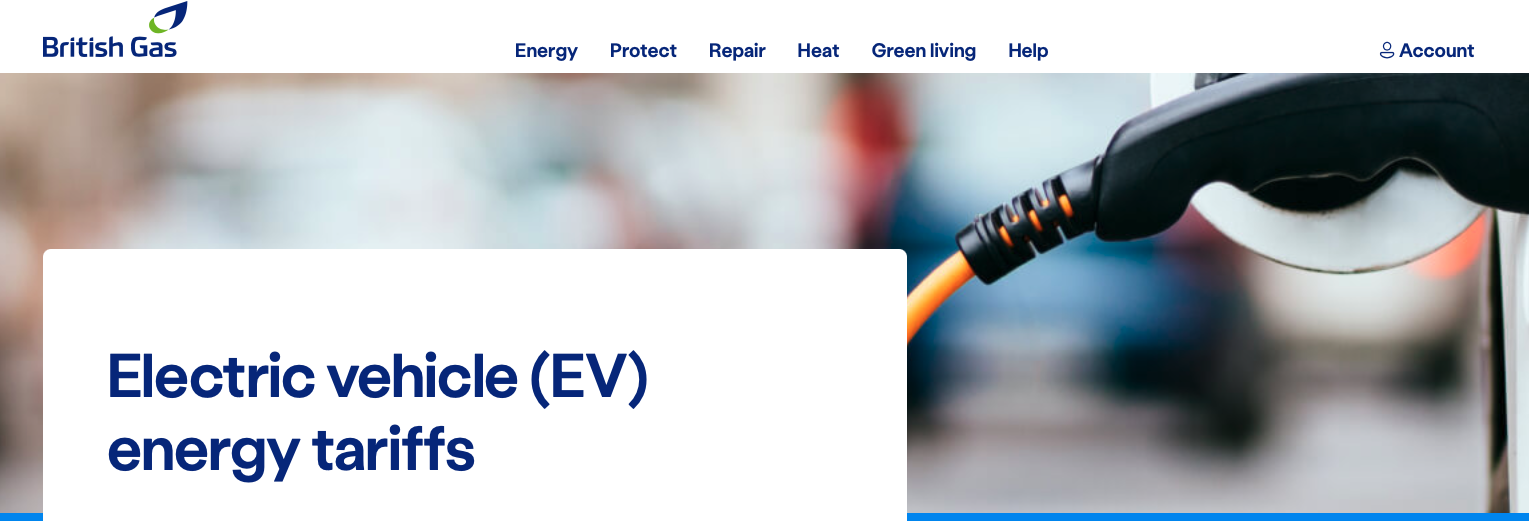
Britishgas.co.uk
Cost/year: £1255.70
Peak: 31.6p
Off peak: 9p
Standing charge: 54.8p
Off peak hours: 5
British Gas was in the top three in our previous chart, but it’s pumped up its prices across the board and seen its ranking tumble. The peak rate is now identical to arch rival Octopus at 31.6p but both the standing charge and off-peak rate are higher than the two Go tariffs.
The EV Power product will work with any car or charger and has an off-peak rate running from 00:00 to 05:00, compared with Octopus’ 00.30 to 04.30. The company has also been offering half price electricity every Sunday from 11am to 4pm for a couple of years now, although it is said to be a limited offer, so it’s not something we would base a long-term decision on. That 16p/kWh is not as cheap as the overnight rates but is still a welcome bonus if you need a battery top up before the Monday commute or just want to do your laundry while it’s still light outside.
We’d offer one word of caution though – British Gas gets very lowly scores in customer service charts. You may decide its worth a few quid extra to go with a company that answers the phone.
9. OVO Charge Anytime (certain cars/chargers only)

Ovoenergy.com
Cost/year: £1252.54
Peak: 26.9p
Off peak: 14p
Standing charge: 58.2p
Off peak hours: N/A
OVO topped our previous chart, but it has had a radical rethink of the way it offers energy to electric car drivers – and we are not sure it is of real benefit to the consumer unless your circumstances are pretty specific.
Whereas its old package was a combination of low prices across the board, OVO is now offering subscription bundles with a set monthly fee, along with a conventional pay as you go tariff with an off peak rate which is double what it was last year.
Go for for subscription and the Standard package is £27.50 per month on top of a conventional tariff costs and includes 175kWh of charging, plus an annual £120 of public charging credit which can be used with several suppliers. That would buy around 12.5kWh extra per month from public points. It also includes accidental damage cover for your charger, which may not be needed as it’s likely to be covered by your home insurance.
There are other higher use packages too, but I concentrated on the Standard as it is best suited to the average user in my calculations.
Using Standard would take your annual bill in my scenario to £1,269.50, but we would need an extra 11.33kWh as a top up (at full price) to cover our monthly miles – that takes the annual total to £1,306.12. That’s the highest here. If you had occasion to make use the full £120 public charging voucher too that would take it back down to £1,186.11 – putting it in fourth place.
Ignoring the public charging and using the PAYG tariff means you would have the flexibility to use more or less than the 175kW without being penalised, and the peak rates are the cheapest. But that 14p off peak rate – plus a higher than average standing charge – hurt its competitiveness.
Bear in mind you’ll be required to have a compatible car and/or charger, and OVO no longer offers any specific EV tariffs for anyone without this connectivity. OVO also only offers the cheaper rate on the electricity which flows through the charger, and not on any other energy used in the home overnight.
Apologies for all the figures, but I can put it simply – the OVO offering isn’t compelling for our use case and is unlikely to be the best option for most people.
8. Scottish EV Saver

Scottishpower.co.uk
Cost/year: £1245.48
Peak: 32.4p
Off peak: 7.2p
Standing charge: 49.3p
Off peak hours: 5
A gold star for Scottish Power for its quote function on the website, which somehow knows your actual usage for the past year and automatically fills it in. The other sites all ask for an estimate, which means you’ll have to scrabble around looking for a bill. Bear in mind this won’t be useful if you are new to EV ownership though and you’ll need to bump up the electricity total to cover the increase as you charge the car.
Scottish will then offer EV buyers two options. The first is its familiar EV Saver package, which has five hours of off-peak power from midnight to 5am GMT, currently priced at 7.2p/kWh, which is only beaten by Octopus’ Intelligent and E.On's Next Smart tariffs. The second choice is called EV Optimise and is an ‘intelligent’ which only works with certain cars. Software will work out when there is surplus capacity in the grid and charge the car when it is cheapest. This could be at any time day or night – you just need to say when you want the car charged by.
But unlike every other intelligent tariff we have come across, the kWh rate is more expensive than the ‘dumb’ price, at 9p/kWh. That makes it tricky to recommend unless you regularly need to charge outside of the overnight hours.
However, we then felt a bit cheated by Scottish Power, as there is no indication on its website to the day rate or standing charges on the EV tariffs when you ask for a quote. At first we assumed they might be the same as the standard tariff you have to sign up for before switching to a special electric car product, but it seems not. After digging deeper it seems they are a hefty 57.7p per day (compared to the 49.3p you'll be quoted) and 32.37p/kWh (up from 27.6p). That results in a very average total. If you found out too late, there's a £100 exit fee if you want to leave.
We ran the figures for the smart Optimise and it came out £40 more expensive than the dumb EV Saver – which would put it ninth in the chart.
There is an added bonus though, as Scottish offer of half price electricity every Saturday and Sunday from 11am–4pm. That won’t bring the cost down to the same level as an overnight charge, but will be good if you need to top up after a big weekend trip or want to turn on the tumble drier.
7. E.On Next Drive
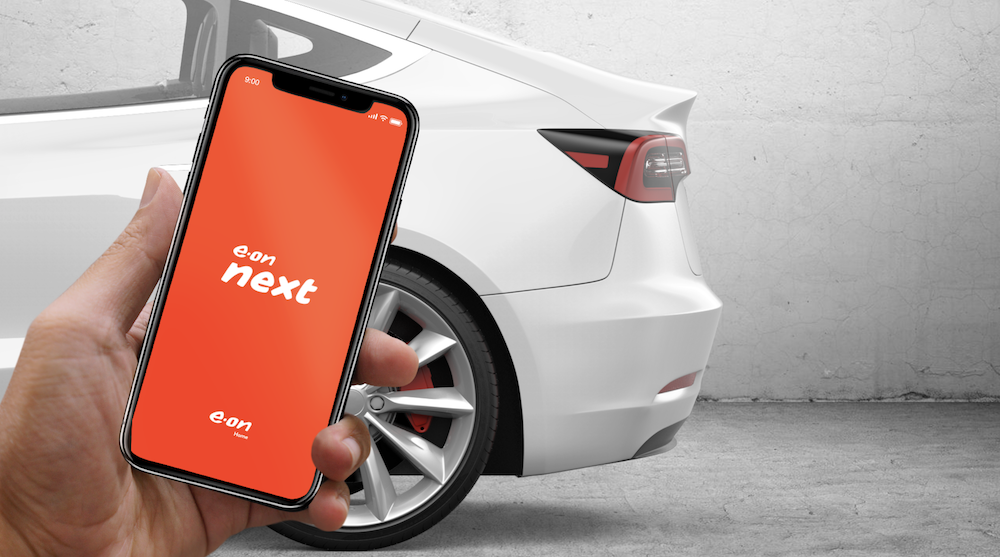
Eonnext.com
Cost/year: £1232.07
Peak: 31.3p
Off peak: 7.5p
Standing charge: 60p
Off peak hours: 6
The main attraction of E.On’s Next Drive has disappeared since we last ran the figures, as the number of hours of lower priced electricity has dropped from seven to six hours. This is still good compared to the four or five hours offered by some of the rivals here but it’s no longer the leader.
It’s a ‘dumb’ tariff so open to any car or charger, unlike E.On’s more competitive Smart tariff. The off peak prices are still keen though, at 7.5p/kWh, and you’re also able to run other energy sapping appliances for longer too – for example using an immersion to heat the water ready for the morning rush to the shower.
A recent price realignment has cut the peak rate to a more reasonable 31.3p per kWh, but the standing charge is at the bottom of the chart. On the plus side, the prices are fixed for a year and there are no exit fees.
6. Ecotricity EV Tariff
Ecotricity.co.uk
Cost/year: £1,222.78
Peak: 31.7p
Off peak: 8.1p
Standing charge: 51.2p
Off peak hours: 5
Long-term electric car supporter Ecotricity was the first energy company to launch a special tariff but dropped out a few years ago. It returned last year with a reasonably competitive package which looks even better this year as its prices have only increased marginally.
The package has a highly competitive off-peak rate, making it cheaper than the ‘benchmark’ Octopus Go prices for a tariff which works with any car and charger. The peak rate and standing charge are a bit average though, which results in the mid-table ranking overall.
Like the others here you get five hours of cheap charging, but you’ll need to reset all your timers when the clocks change though, as the low cost electricity is from 12am–5am in winter and 1am–6am when the clocks change for summer.
The Ecotricity tariff is also fixed for 12 months. While this gives some security, it will also mean you are locked in if prices fall and there’s a £100 exit charge (per fuel – so £200 if you take gas too). There's no requirement to own a certain type of charger or need to prove EV ownership – the package is open to anyone with a smart meter.
5. Octopus Go

Octopus.energy
Cost/year: £1218.45
Peak: 31.6p
Off peak: 8.5p
Standing charge: 47.7p
Off peak hours: 5
Electric car drivers get quite evangelical about Octopus Go, and that includes me. It’s no exaggeration to say it has saved me personally hundreds of pounds while I’ve been using it. But while its ranking has improved from 7th last year, its 5th place in the rankings will be a surprise to many who think Octopus is the benchmark. If you need a 'dumb' tariff which doesn't need a special charger or car, the So Energy option is likely to be cheaper.
The peak rate of 31p is now one of the highest, costing £127.17 per year more than on an OVO tariff. The off-peak cost stays the same as previous years, providing power at 8.5p/kWh between 12:30am and 5:30am every night and it works with any car, charger and anything else you want to plug in overnight. While that cost is only middling these days, the standing charges are the cheapest in our chart, at 47.7p per day.
4. Intelligent Octopus Go (certain cars/chargers only)
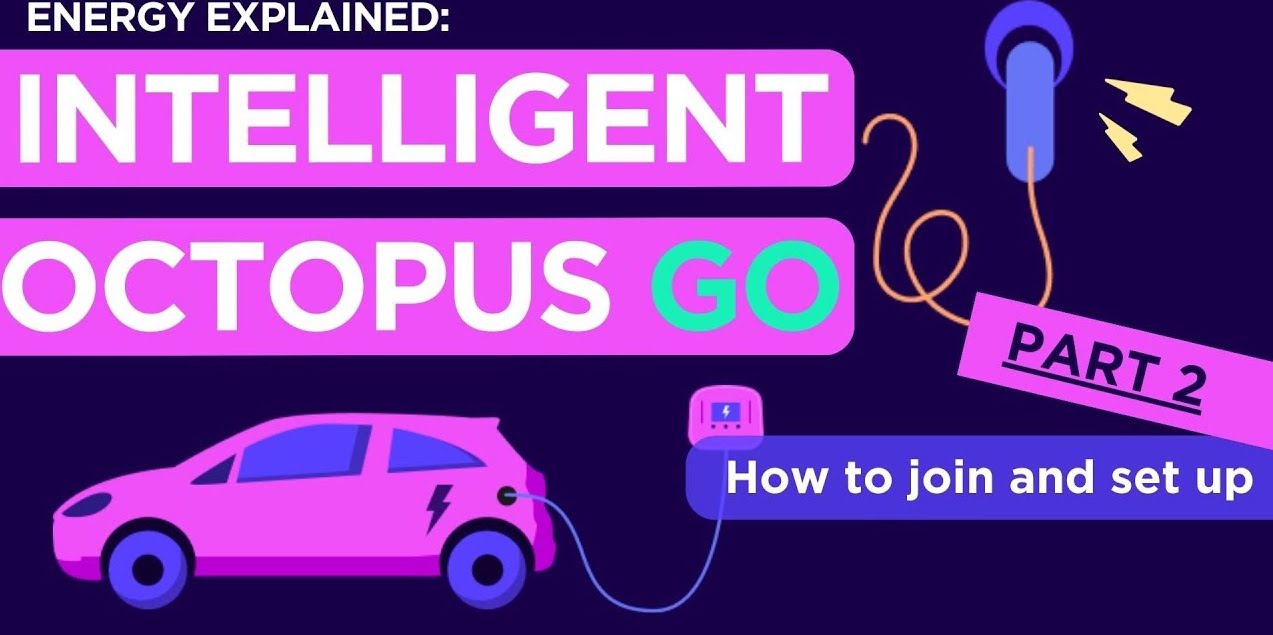
Octopus.energy
Cost/year: £1184.91
Peak: 31.64p
Off peak: 7.0p
Standing charge: 47.7p
Off peak hours: 6
Octopus’ flagship tariff was in first place in 2024 but can only manage third place this year. The 7p off peak price is still among the leaders and the standing charge is the cheapest (along with Octopus’ other tariff) at 47.7p per day. But the peak rate of 31p is now one of the highest. That adds £127.17 per year to the bill compared with the cheapest OVO tariff's peak rate total.
But bear in mind that Intelligent products are not open to everyone. If your car or charger are compatible you will be treated to off peak prices for six hours, which will include the rest of your household usage, from 11.30pm to 5.30am. The list of compatible vehicles and chargers is often updated, so check on the Octopus site before making a decision.
Key to Intelligent Go is an app which you set up to say how much charge you want and when you want to leave in the car. Then the Octopus software works out when there is excess supply in the grid and automatically charges your car while you sleep. If you can programme appliances – or a second electric car – to charge overnight then it will save you money.
3. E.On Next Smart (certain cars/chargers only)
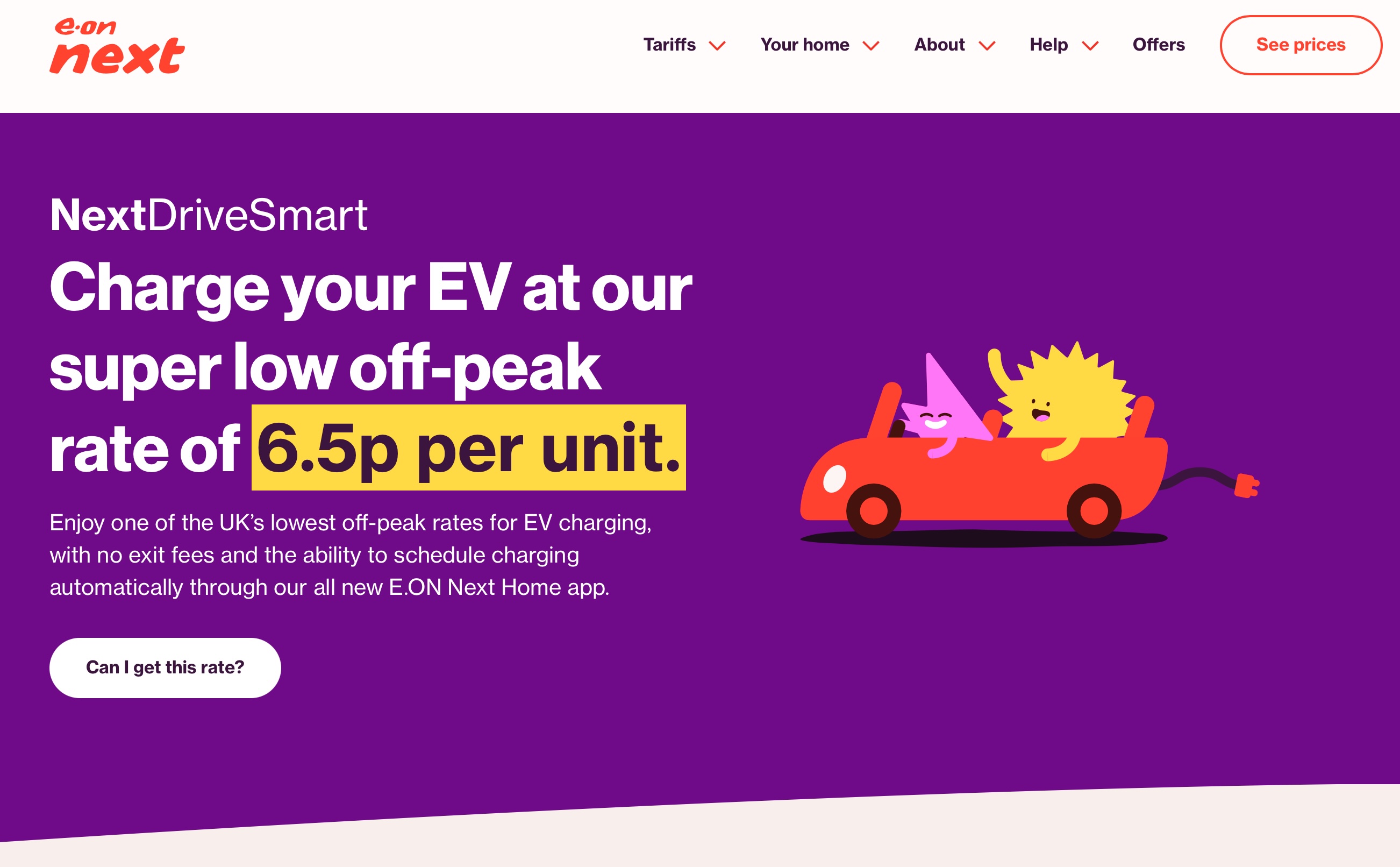
Eonnext.com
Cost/year: £1179.74
Peak: 30.2p
Off peak: 6.5p
Standing charge: 60p
Off peak hours: 6
Adding smart capability to E.On’s Next package makes it much more tempting, especially for heavy users who need to charge often. The off-peak rate is just 6.5p/kWh – along with So Energy, that's lowest we could find from any supplier. It also means you get the same low rate for any other power you use from midnight to 6am.
The daytime peak rate is a mid-ranking 30.2p per kWh, which is lower than E.On’s non-smart Next tariff. But it’s the hefty 60p per day standing charge which really hurts E.On’s chances of a win here.
As it’s a smart tariff, you’ll need to plug your car in for as long as possible and the car will talk to the network to choose the greenest time to charge. Unlike rival suppliers though, E.On doesn’t make use of smart charger and instead relies on the software in compatible cars. Currently it works with most models from Audi, BMW, Cupra, Mini, Nissan, Porsche, Seat, Skoda, Tesla and Volkswagen.
2. So Energy Myrtle – Best non-smart tariff

so.energy
Cost/year: £1164.47
Peak: 30.9p
Off peak: 6.5p
Standing charge: 50.5p
Off peak hours: 5
Never heard of So Energy? I hadn’t either, but it’s backed by Ireland’s state-owned utility supplier so isn’t likely to disappear overnight.
Its first appearance in this chart is straight in at number 2, making it the best non-smart tariff which will work with any charger or car and gives you an unbeatable 6.5p off peak rate between the hours of 12am and 5am, for all your household power – not just the energy going through the charger. Bear in mind this is just for five hours though, compared to some rivals six.
This is combined with a daytime price of 30.9p, which isn’t the best but is far from the worst too. It’s the same story for the standing charge, which is higher than most key rivals at 50.5p per day but is a hefty 9.5p less than the third placed E.On.
Feed the prices into the spreadsheet and it means the total is just a few pence more than the EDF package and a decent £53.98 less than the most popular Octopus Go tariff. If you do more miles than the average or can shift some of your other electricity usage to the night then this could tip the balance in So Energy’s favour and make it the cheapest overall. The only downside is a £50 exit fee per fuel.
1. EDF GoElectric Smart
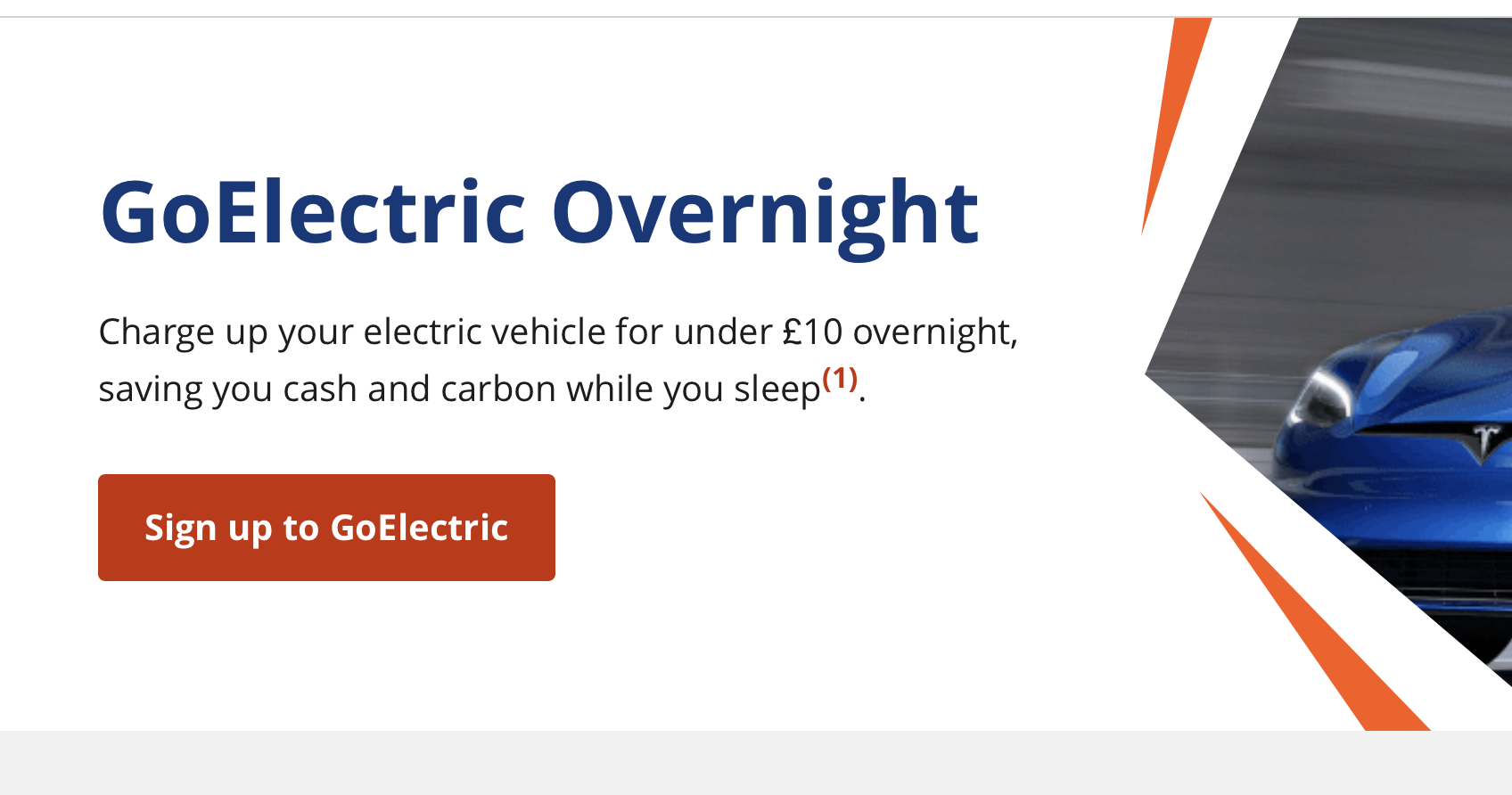
Edfenergy.com
Cost/year: £1,163.14 (minus £60 cashback for smart charging)
Peak: 28.91p
Off peak: 8.99p
Standing charge: 49.74p
Off peak hours: 5
The second tariff offered on EDF's 'Electric Cars' menu is called GoElectric and looks far more attractive than the Evolve, especially if you can add something called a smart charging bolt-on to get more savings on the bill. While none of the costings are the cheapest, they are near the top of the charts and cumulatively add up to a competitive package.
Even without the smartness, you are offered five hours of off peak rate at 9p/kWh with a peak rate of just under 29p. The standard charge is a reasonable 49p per day.
Adding the smart option – available on most models from Audi, BMW, Cupra, Mini, Nissan, Porsche, Seat, Skoda, Tesla and Volkswagen, or through a Hypervolt or myenergi zappi charger – brings a £5 per month incentive just for plugging in regularly. But it also means EDF might choose to start the car’s charging outside of the normal 12am to 5am window if there is excess capacity in the grid. And if that happens, the rest of your home gets the same cheaper rate.
EDF offers an interesting option too. It will install a Pod Point Solo 3S EV charger and spread the cost across two-year fixed tariff with a higher standing charge. It’s a cheap way of getting a charger if you need one, and the off peak charge is slightly cheaper at 8.49p/kWh too. Strangely this charger doesn’t work with the smart tariff though.
Verdict – which are the best electricity tariffs for electric cars?
First, the cheapest deal for you will depend on all sorts of variables so get a quote using your own figures – but hopefully this will give you an idea of where to start so you don’t spend a day tapping details into websites.
The cheapest (and greenest) rate is an 'intelligent' or 'smart' tariff, meaning it requires you to plug in more often and allow the supplier to manage the flow of power depending on the demand on the grid. Bear this in mind if you haven’t yet bought your EV or chosen your charger yet, but it's not likely to be worth you changing either just to get the benefits.
Based on my average use figures, EDF's GoElectric is cheapest. None of its prices are the lowest individually, but they add up to a lower overall cost. So Energy is very close behind and its lower night time rates may mean drivers covering more miles will be better off. E.On's smart tariff is close behind but its chances are ruined by a stiff standing charge.











